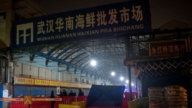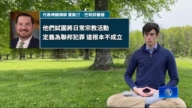【新唐人2011年3月25日讯】中共能源局官员放出口风说要开发怒江后,引起了很多专家学者的反对,有专家从政界、商界和学术界,分析了促成怒江开发的原因,专家表示,开发怒江,从地方政府的税收和GDP上显得有利,但民众的生活、土地却必须遭到牺牲。请看详细报导。
怒江作为中国西南部最后一个还没有兴建水坝的原始生态流域,坐落在欧亚板块和印度洋板块的结合部,这一区域目前属于地震高发期。长期研究中国地质、水利工程和西南地矿等多个领域的专家学者们,在媒体上纷纷阐述反对在怒江上建水坝的观点和理由。
而在怒江上建水电站的提案曾一度被搁置了6年多,现在为什么又被提出来了呢?四川地矿局总工程师范晓认为,上马一个大的工程,对政府的好处主要体现在:大陆考核与提升官员的重要指标GDP,和地方政府的税收上。
四川地矿局总工程师范晓:“这么大工程,从地方政府来说,一个是它的GDP,最重要的是它的财政收入。我们仅从GDP来考虑,它肯定会带来短期的好处的。建设期它要交税,那么建设后它要运行,也要交税,那么这个税收对它每年是很可观的。”
据海外媒体的披露,大陆一个工程中三分之一到三分之二的经费,是落在各级开发商的层层转手倒卖上。
范晓:“开发商当然也是得利的,开发商一个项目拿下来以后就会获得银行的贷款,贷款以后他作为一个总的承包商,他就会在这个工程的发放过程中获得非常大的利益,至于以后的问题他是不会管你的。”
官商的联合一般就能达到他们的目地,那为什么还有一些在水电工程领域里名声很大的学者专家也参与进来、举手赞同呢?
范晓:“这些专家都是给他们水电开发商做相应的评估啊、环评啊,他们很多项目的钱都是开发商给。在以前的很多项目,这些专家都是作为开发商的委托方来做很多工作的,他们就是长期以来都有很好的合作关系的。”
范晓表示,开发怒江会给当地居民带来很大的影响。由于怒江流域两岸山陡坡急,近几十年,原本世代在高山上居住的傈僳族和怒族人民,逐渐迁徙到沿江两岸、土地最肥沃的河谷地带。要修怒江水坝,就要淹没当地主要的良田和人口最密集的住地。本来从山上搬下来的人有些要往回搬,这样对生态会造成破坏。如果几万人搬到外地去,从已知的移民获得的实际补偿来看,他们的命运和生活会完全改变。
新唐人记者赵心知、王明宇采访报导。
======
Analyzing the Nujiang Project
Officials of China’s National Energy Administration
revealed their plan to exploit Nujiang, which caused
objections from many experts and scholars.
Some experts analyzed factors which precipitate
Nujiang hydro plan, from political, business
and academic perspectives. These experts said,
to exploit Nujiang will be beneficial to local revenue
and GDP growth, but it will be at the cost
of people’s daily life and land.
Nujiang is the only primeval watershed ecosystem
whithout hydroelectric stations in Southwest China.
Located at Eurasian & Indian Ocean junction plates,
it is currently facing high risk of earthquakes.
Experts and scholars studying China’s geology,
hydro projects, southwestern mineralogy, etc.,
expressed to the press their reasons and opinions
against the Nujiang hydro project.
Then why China’s authorities now resume the
Nujiang hydro project after it has been shelved for
more than 6 years? Fan Xiao, Chief Engineer at
Sichuan Geology and Mineralogy Bureau believes
that as major project, it can benefit the GDP growth,
which is a critical factor in evaluating and elevating
Chinese officials, as well as the local revenue.
Fan Xiao: “Being such a huge project from the local
government’s standpoint, it will increase its GDP
and more importantly, its revenue. If we consider
only the GDP, it will surely bring short-term benefits.
Also, the annual revenue from its construction stage
to running stage is considerable too."
Uncovered by foreign media, about 1/3 to 2/3
of a project fund in China is retained by developers
at all levels in the process of buying and reselling.
Fan Xiao: “Of course the developers make money
in the process. Once a developer successfully bids
for a project, he will immediately get a large loan
from banks. With the loan, he then becomes
a general contractor and will profit hugely through
distributing the project work. But he doesn’t
care about the subsequent problems."
Generally speaking, officials and merchants can get
what they want through colluding with each other.
But why many experts and scholars with high repute
are involved too and welcome these hydro projects?
Fan Xiao: “These experts do related environmental
assessments for hydroelectric station developers,
and in return, receive funds from them
for assessment projects. In the past, many of the
assessment projects done by these experts were
requested by developers and they have
cooperated well with each other for a while now."
Fan Xiao said that Nujiang’s development will
surely have significant impact on local residents.
Because of the steep mountains along the two sides
of Nujiang River, Lisuzu and Nuzu people formerly
inhabiting the mountains, have recently moved
to the stream valleys along the two sides of Nujiang.
If the hydro project takes place, the fertile land and
the most populated areas there will be flooded.
People who moved here from mountains will need
to go back, which will harm the local ecosystem.
If tens of thousands of people are moving away,
their life will be totally changed considering
the expected compensation they will get.
NTD reporters Zhao Xinzhi and Wang Mingyu.



























